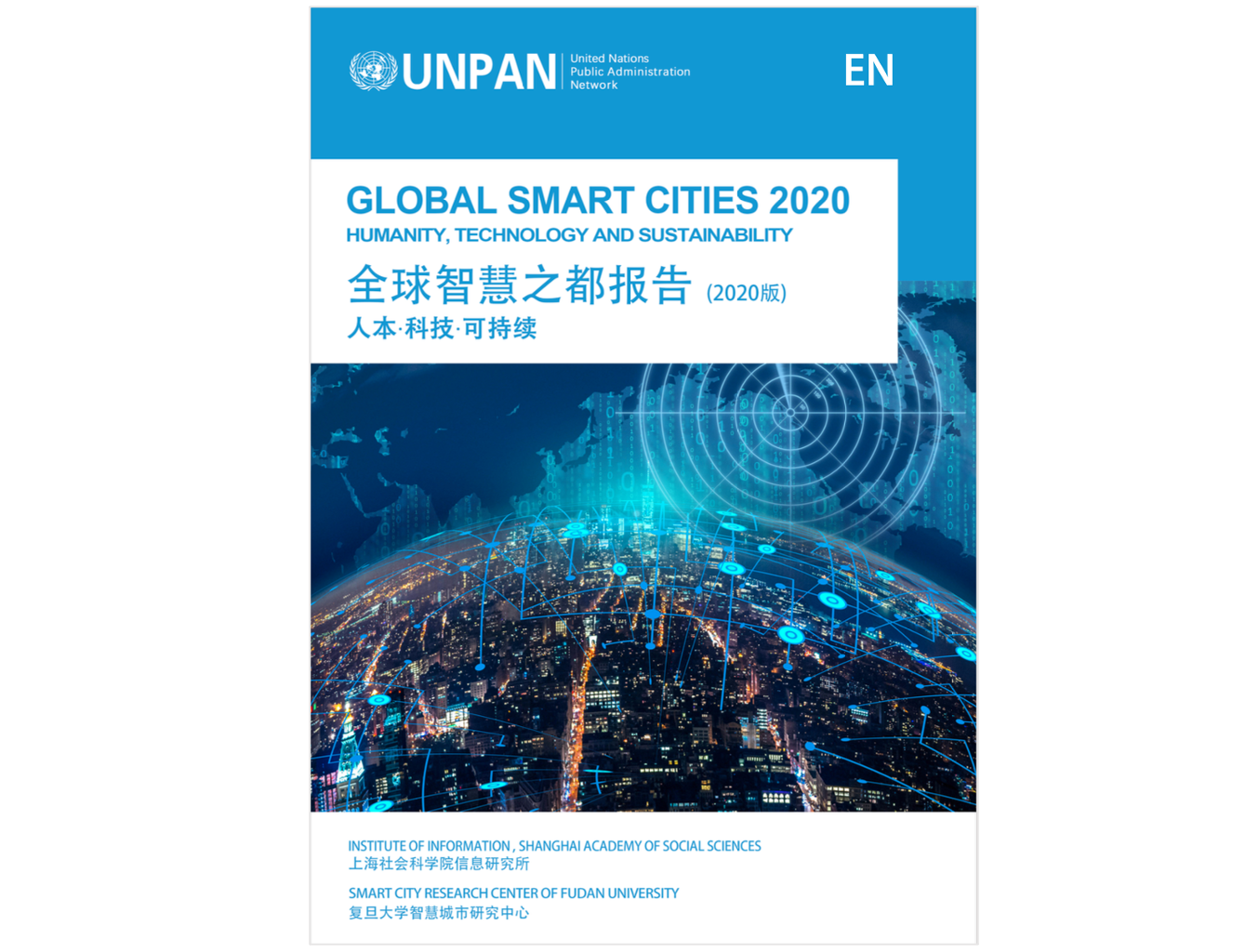"Global Smart City 2020" is the fourth edition of biennial review of smart cities released by the Smart City research group of Shanghai Academy of Social Sciences since 2010. This report is the result of cooperation with Smart City Research Center of School of Management, Fudan University under the background that the coronavirus epidemic is still spreading. Especially, we are gratitude to have the consistent support from the United Nations Public Administration Network.
This report builds a “5+1” evaluation model for global smart cities, and provides five quantitative indicators, namely smart infrastructure, smart economy, smart services, smart governance, and smart innovation, plus one qualitative indicator "smart reputation", a total of six dimensions of comparison, attempts to set a benchmark for global smart cities, and provides diversified solutions for the realization of the Sustainable Development Goals 2030 (SDG 2030) proposed by the United Nations in 2015 as well.
Through continuous follow-up research of the practices of the "Smart cities" in the past ten years, we find that the fundamental challenges of the city are typically not solved by technology itself, but more by the governance of the city. At the same time, the introduction of technology often requires complementary policies. Only when the policies changes are aligned can the best performances be achieved. In other words, only by truly achieving people-oriented and mobilizing all stakeholders involving government , business, and communities, civic society to participate in all aspects of the city can we get a smarter city.
This report reflects the themes of "Humanity, Technology and Sustainability": The first is to highlight the spirit of "humanity", i.e., the citizen-centered approach, which reflects in the indicator of "smart service"; The second is to emphasize the impact of emerging digital technology on urban governance, including the increasingly important agenda of "data governance". Therefore, we introduce the indicator of “smart governance”; The third is to strengthen the role of innovation in the development of smart cities, especially in sustainable development, and propose that the sustainability of smart cities is inseparable from innovation enabled by digital technology, thereby introducing the "smart innovation" indicator.
The first part of this report is the comprehensive ranking. The results show that global smart cities can be divided into three levels: "leading", "advanced" and "following". London, New York and Singapore are in the leading position and the star cities in this ranking. They have maintained a leading position in almost every aspect of smart cities and have become role models for other cities around the world.
The second part analyses the sub-index rankings. With regard to smart infrastructure, Hong Kong and Singapore rank in the top two. Some cities in Europe and America followed closely behind. Among developing cities, Dubai has a relatively outstanding performance. In terms of smart economy sub-index, New York and London ranked the top two. Beijing and Shanghai have performed well in this field and entered the first camp.
The smart service sub-index reflects the smartness of city’s citizens’ livelihood services. Shanghai and Beijing have performed very well, indicating that China's major cities are already at the forefront of the world in terms of digital technology applications. Dubai and Singapore ranked second.
In terms of smart governance sub-index, London and Seoul rank the top two. They excel in the dimensions of data openness and sustainability. Dubai and Singapore ranked third and fourth respectively.
In terms of smart innovation sub-index, traditional world cities such as London, New York, Paris and Tokyo rank top four. They have outstanding performance in science and technology, education, innovation, and have stronger human capital as well.
“Smart reputation” reflects the degree of attention in academy of major smart cities. The results show that Beijing, Singapore and New York rank in the top three, and their smart city construction is favored by academic circle.
File added date: 18 November 2021
Author: RCOCI
Download the publication: English
URL: https://unpan.un.org/sites/default/files/d8-files/Global%2BSmart%2BCities%2B2020.pdf
 مرحباً بكم في الأمم المتحدة
مرحباً بكم في الأمم المتحدة 
